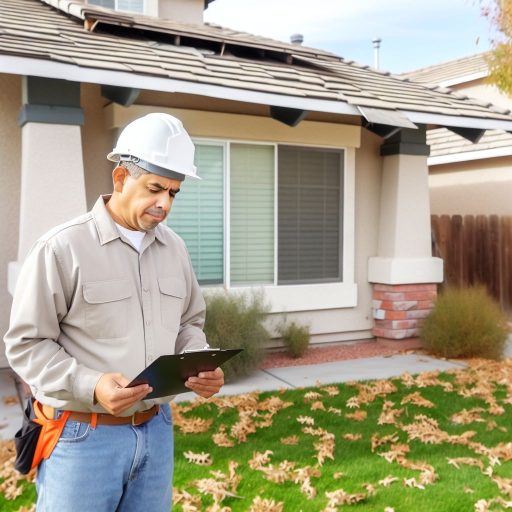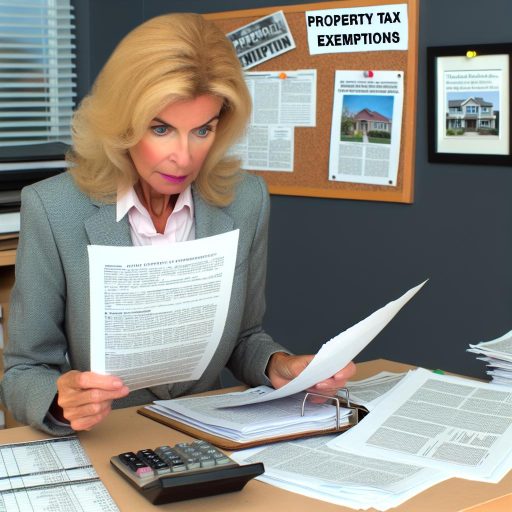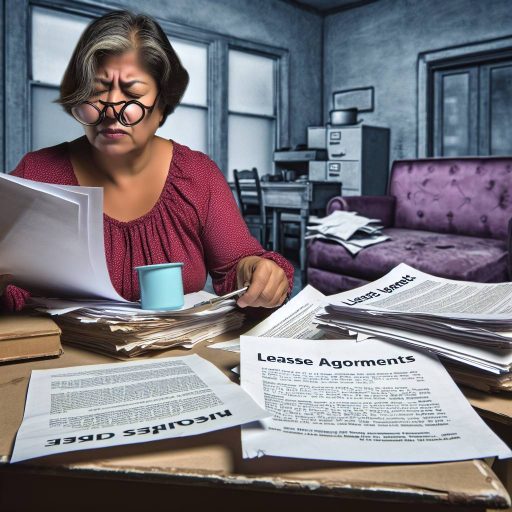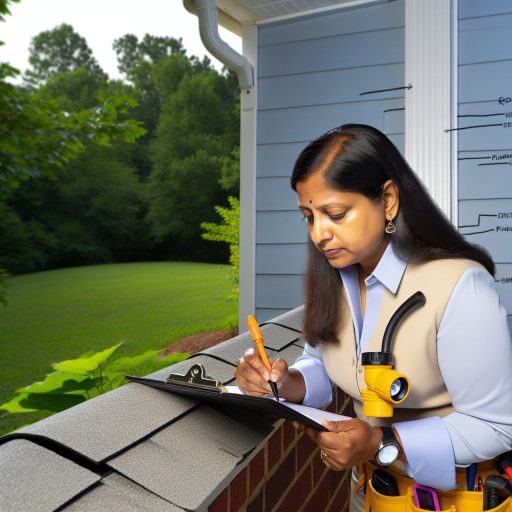Overview of Property Inspections in Commercial Lease Agreements
Property inspections are vital in commercial lease agreements.
They serve to protect both landlords and tenants during the leasing process.
Additionally, these inspections help identify potential issues before they escalate.
Importance of Property Inspections
Inspections provide transparency between landlords and tenants.
They help verify the condition of the property at the beginning of a lease.
Furthermore, they establish a record for future reference.
This can prevent disputes regarding property damage or necessary repairs.
Types of Property Inspections
Multiple types of inspections exist for commercial properties.
Physical inspections assess the condition of the structure.
Environmental inspections check for harmful substances like asbestos.
Regulatory inspections ensure compliance with local laws.
Also, financial inspections review the financial health of tenants.
Process of Conducting Property Inspections
The inspection process begins with scheduling a suitable time.
Both parties should agree on a convenient date and time.
Next, the inspector conducts a thorough examination of the property.
This includes checking structural integrity, plumbing, and electrical systems.
Subsequently, the inspector prepares a detailed report of findings.
Role of Professional Inspectors
Professional inspectors play a crucial role in the inspection process.
They possess expertise in identifying hidden issues within properties.
Additionally, they provide an unbiased assessment of the property condition.
This helps maintain trust between landlords and tenants.
Addressing Inspection Findings
Upon receiving the inspection report, both parties should review it thoroughly.
Landlords must address any significant issues highlighted in the report.
Tenants should communicate their concerns and expectations clearly.
Ultimately, both parties should work towards mutually acceptable solutions.
Legal Considerations
Property inspections can have legal implications in lease agreements.
Any findings may influence lease negotiations and terms.
Moreover, specific clauses in lease contracts often mandate inspections.
Parties must understand their rights and obligations regarding property inspections.
Importance of Property Inspections for Tenants and Landlords
Property inspections play a crucial role for both tenants and landlords.
These inspections ensure that rental spaces remain safe and compliant.
For tenants, inspections provide peace of mind regarding their living environment.
They can identify potential issues before moving in.
Additionally, inspections help establish baseline conditions for the property.
This information is vital for both parties to avoid disputes later on.
Benefits for Tenants
For tenants, thorough inspections reveal any maintenance or repair needs.
Understanding the property’s condition enhances transparency in the leasing process.
Tenants can negotiate repairs before signing the lease.
This ability protects their interests in the long run.
Furthermore, inspections can inform tenants of safety hazards.
Addressing these hazards contributes to their peace of mind.
Benefits for Landlords
Landlords also benefit from property inspections significantly.
First, they can maintain the property’s value over time.
Regular inspections allow landlords to identify and address issues promptly.
This proactive approach minimizes costly repairs later.
Additionally, it helps maintain good relationships with tenants.
Showing a commitment to maintaining the property fosters tenant satisfaction.
Finally, inspections serve as documentation for the property’s condition.
This documentation can protect landlords in case of disputes.
Legal Requirements and Standards
Many jurisdictions require property inspections under specific regulations.
Landlords must ensure adherence to these local laws.
Complying with legal requirements safeguards both parties’ interests.
Tenants should be aware of their rights regarding property conditions.
Understanding these rights helps them advocate for necessary repairs.
Best Practices for Conducting Inspections
Conducting effective inspections involves specific best practices.
Both landlords and tenants should schedule inspections before the lease signing.
It is essential to document all findings thoroughly.
This documentation should include photographic evidence for clarity.
Moreover, conducting inspections regularly throughout the lease is advisable.
This consistency helps maintain the property’s quality over time.
Types of Property Inspections Commonly Conducted
Visual Inspection
A visual inspection examines the general condition of a property.
Inspectors look for visible defects and signs of damage.
This type of inspection often covers both the interior and exterior.
Inspectors may assess landscaping, roofs, and facades.
Property managers also check the condition of plumbing fixtures.
Operational Inspection
An operational inspection evaluates the functionality of building systems.
This includes HVAC, plumbing, and electrical systems.
Inspectors ensure all systems operate efficiently and safely.
Moreover, they verify that safety equipment is functional.
It identifies potential operational issues before lease agreements are signed.
Environmental Assessment
Environmental assessments identify potential contamination in the property.
These assessments evaluate hazardous waste and environmental compliance.
Additionally, inspectors examine any nearby environmental risks.
This type of inspection ensures properties meet health regulations.
It helps mitigate future legal and financial risks.
Compliance Inspection
Compliance inspections assess adherence to local building codes.
Inspectors review fire safety codes and zoning regulations.
They also check for compliance with accessibility standards.
This ensures the space is usable for all tenants and visitors.
Staying compliant can save building owners from costly penalties.
Specialized Inspections
Some properties may require specialized inspections.
These can include assessments for pest infestations or structural integrity.
Inspectors may look for termites, rodents, or other pests.
Likewise, structural inspections evaluate the integrity of foundations and frames.
These inspections provide peace of mind for both landlords and tenants.
Find Out More: How to Create Effective Rental Property Listings for Maximum Exposure
Key Areas of Focus During a Commercial Property Inspection
Exterior Condition
Inspect the building’s facade for any damage or wear.
Pay attention to the windows and doors for functionality.
Examine the roofing for potential leaks or deterioration.
Evaluate the landscaping and parking areas for maintenance issues.
Check for proper drainage around the property.
Interior Spaces
Review the layout for any health and safety compliance issues.
Check for signs of water damage or mold inside the building.
Examine the condition of flooring and walls for any repairs needed.
Inspect HVAC systems for functionality and efficiency.
Assess electrical systems to ensure they meet current codes.
Building Systems and Equipment
Evaluate the plumbing systems for leaks or inefficiencies.
Inspect fire safety systems, including alarms and extinguishers.
Check elevators and escalators for operational safety.
Review all mechanical systems for proper maintenance records.
Compliance with Local Regulations
Verify that the property complies with zoning laws.
Ensure it adheres to health department regulations.
Check for appropriate permits and licenses for operation.
Review environmental regulations for potential compliance issues.
Potential Maintenance Issues
Identify any outstanding repairs from previous inspections.
Assess wear and tear on building components.
Evaluate the timeline for necessary future repairs.
Document any maintenance backlog to discuss with property managers.
Find Out More: Property Inspections for Commercial Buildings
Legal Implications of Inspection Findings in Lease Agreements
Understanding Inspection Results
Inspection results significantly impact commercial lease agreements.
From these findings, landlords and tenants derive critical insights.
Consequently, both parties must carefully consider the implications.
Responsibility for Repairs
Inspection findings often dictate who bears repair responsibilities.
Landlords typically handle structural issues revealed during inspections.
Meanwhile, tenants may be responsible for non-structural damages.
This division helps clarify obligations under the lease agreement.
Negotiation Opportunities
Inspection results can serve as leverage in negotiations.
For instance, discovered issues may lead to reduced rent.
Tenants can use inspection findings to request repairs or improvements.
Thus, this opens avenues for beneficial discussions.
Legal Consequences of Non-Compliance
Failure to address inspection findings can lead to legal challenges.
Landlords might face lawsuits for neglecting necessary repairs.
Similarly, tenants may face penalties for unreported damages.
Both parties should prioritize compliance to avoid disputes.
Documentation and Record Keeping
Thorough documentation of inspections is crucial.
Maintain records of all findings and communications regarding repairs.
This helps protect both parties’ interests in any legal disputes.
Proper records can serve as evidence of compliance or negligence.
Implications of Inspection Findings
Ultimately, inspection findings carry substantial legal weight.
Understanding their implications fosters better lease agreements.
Both landlords and tenants benefit from clear communication and documentation.
Delve into the Subject: Legal Guidelines for Screening and Rejecting Tenants
Best Practices for Conducting Property Inspections
Preparation for Inspections
Begin by reviewing the lease agreement before conducting an inspection.
This document outlines the specific responsibilities of both parties.
Next, create a checklist based on the terms stated in the lease.
A checklist helps ensure no critical areas are overlooked.
Additionally, schedule the inspection at a convenient time for both parties.
Ensure that all involved parties are informed in advance.
Types of Inspections
Conduct move-in and move-out inspections regularly.
Moving inspections evaluate the property’s condition at the beginning of the lease.
Move-out inspections assess any damages or necessary repairs before the new tenant arrives.
Periodic inspections help maintain the property’s overall condition.
These inspections can identify maintenance issues before they escalate.
Documentation and Reporting
Keep detailed records of all inspections conducted.
Documentation includes notes, photos, and checklists filled during inspections.
Provide a copy of the inspection report to all relevant parties.
Additionally, ensure that the documentation is clear and concise.
Follow-Up Actions
Address any identified issues promptly after the inspection.
Ensure that any necessary repairs are completed before subsequent inspections.
Communicate with tenants about the findings and planned action steps.
Continuous communication fosters trust and transparency.
Finally, schedule regular follow-up inspections to monitor progress.
Gain More Insights: Property Inspections for Real Estate Investors
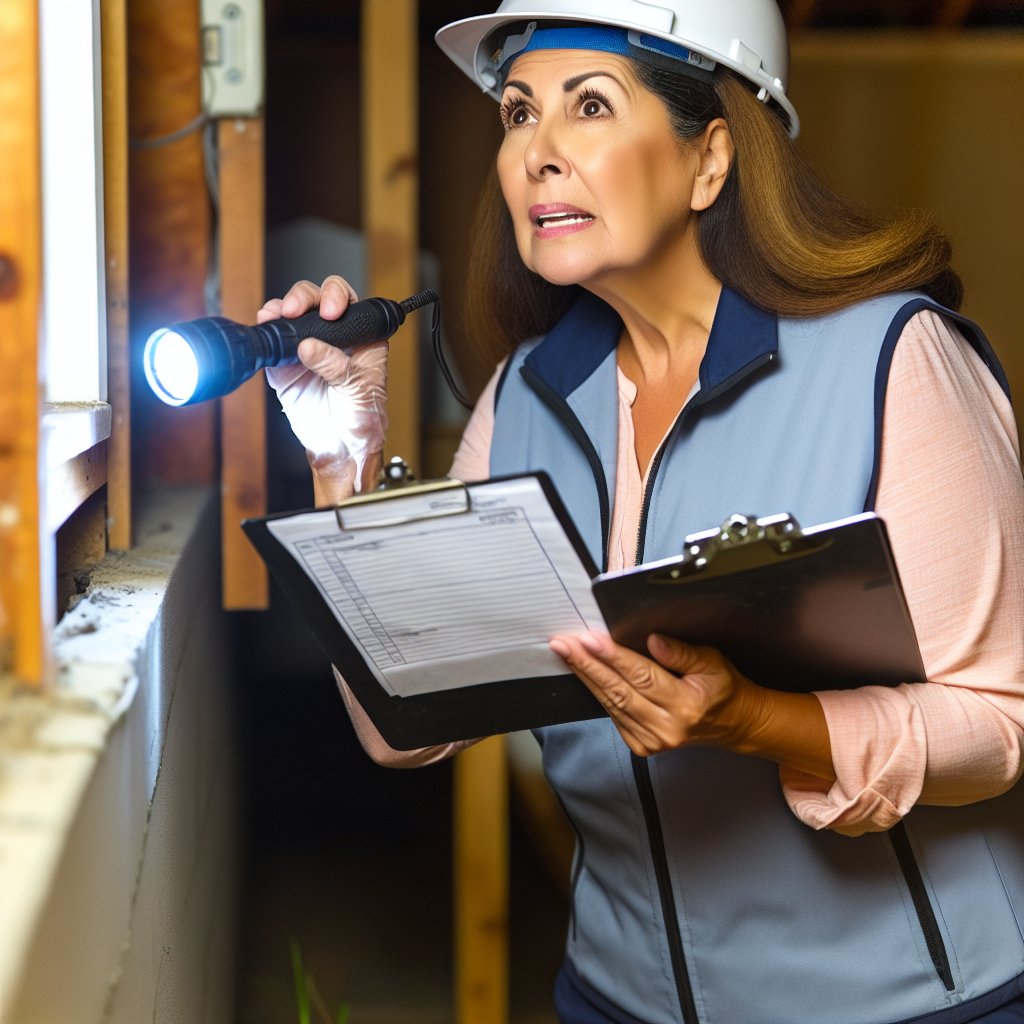
How to Address Inspection Issues and Negotiation Strategies
Understanding Inspection Issues
Property inspections often reveal critical issues in commercial properties.
Landlords and tenants must address these findings promptly.
Ignoring issues can lead to complications during negotiations.
Additionally, disputes may arise regarding responsibility for repairs.
Evaluating Inspection Reports
Thoroughly review the inspection report once it’s available.
Identify any significant concerns that could affect the lease.
Document all observed issues and gather supporting evidence.
For instance, photos of damages can provide clarity.
Discussing Findings with Landlords
Engage in open dialogue with landlords about inspection results.
Clearly communicate concerns and desired outcomes.
Offer specific examples to illustrate your points.
This approach fosters collaboration and understanding.
Negotiating Repairs and Adjustments
Use findings to negotiate necessary repairs before lease signing.
Request a timeline for how quickly issues will be resolved.
Consider discussing lease adjustment options if repairs take longer.
Additionally, requesting rent credits during repair periods may be beneficial.
Leveraging Professional Advice
Consulting with professionals can enhance your negotiating position.
Consider hiring a property inspector for a second opinion.
Legal advisors can help interpret lease language related to inspections.
This expertise provides leverage during discussions.
Finalizing Negotiations
Once agreements are reached, document everything in writing.
Ensure all parties sign off on the changes to the lease terms.
This ensures accountability and clarity moving forward.
Ultimately, a well-documented process aids in preventing future disputes.
The Role of Professional Inspectors vs. In-House Inspections
Understanding the Importance of Property Inspections
Property inspections play a critical role in commercial lease agreements.
They help identify potential issues before they escalate.
Consequently, both professional inspectors and in-house teams play vital roles.
Professional Inspectors: Expertise and Objectivity
Professional inspectors bring specialized knowledge and experience to property assessments.
They can identify structural issues that may not be visible to untrained eyes.
Additionally, they provide impartial evaluations, which are crucial for negotiations.
Moreover, their findings can significantly influence lease terms and conditions.
Using professionals ensures a thorough and unbiased inspection process.
In-House Inspections: Cost-Effective and Familiar
In-house inspections utilize team members familiar with the property.
This familiarity can provide unique insights and nuances about the space.
Furthermore, in-house inspections can be more cost-effective for companies.
However, they might lack the objectivity offered by professional inspectors.
Employees might overlook critical issues due to personal biases.
Comparing Approaches: Pros and Cons
- Expertise: Professional inspectors offer extensive knowledge.
- Cost: In-house teams may present a lower price point.
- Objectivity: Professionals provide unbiased assessments.
- Familiarity: In-house teams understand the property dynamics.
Choosing the Right Inspection Method
Selecting the appropriate inspection method depends on various factors.
Consider the size and complexity of the property.
Additionally, evaluate the budget and timeline for inspection.
Ultimately, balancing expertise with cost-effectiveness is essential.
Consulting with industry experts can help make informed decisions.
Frequency and Timing of Inspections During Lease Terms
Importance of Regular Inspections
Regular inspections play a crucial role in preserving property value.
They help identify maintenance issues before they escalate.
Additionally, inspections ensure compliance with lease agreements.
Landlords benefit from timely knowledge of property conditions.
Inspection Frequency
The frequency of inspections can vary based on property type.
Typically, commercial properties undergo inspections every six months.
However, certain situations may require more frequent checks.
For instance, high-traffic retail spaces may warrant quarterly reviews.
On the other hand, offices in stable conditions might only need annual inspections.
Timing of Inspections
Timing also significantly impacts the effectiveness of inspections.
Conducting inspections during lease renewals provides vital insights.
Additionally, scheduling them after significant renovations can identify shortcomings.
Seasonal inspections can uncover weather-related issues as well.
For example, inspecting before winter can address heating concerns.
Final Considerations
Establishing a clear inspection schedule benefits both tenants and landlords.
Effective planning helps in managing expectations and responsibilities.
Ultimately, regular inspections contribute to a successful tenancy.
Sample Inspection Checklist for Commercial Leases
Property Exterior
Inspect the building’s façade for any visible damage.
Check for water stains or signs of leaks around windows and doors.
Evaluate the condition of roofs and gutters.
Assess the parking lot and access points for hazards or excessive wear.
Ensure landscaping is maintained and free of debris.
Building Interior
Examine all flooring for signs of damage or wear.
Check wall surfaces for cracks, peeling paint, or mold.
Inspect all doors and windows for functionality and security.
Look for adequate lighting in all areas of the premises.
Assess the HVAC systems for proper operation and cleanliness.
Life Safety Systems
Verify that smoke detectors are present and functioning.
Ensure fire extinguishers are accessible and within inspection dates.
Check the emergency exits for proper signage and accessibility.
Inspect any fire suppression systems for compliance with regulations.
Confirm that first aid kits are stocked and accessible.
Utilities and Fixtures
Evaluate the plumbing for leaks and proper drainage.
Inspect electrical outlets and circuits for functionality and safety.
Check all appliances for proper operation and maintenance history.
Assess the condition of any fixed fixtures, like sinks and toilets.
Ensure utility access points are unobstructed and clearly marked.
Compliance and Documentation
Review any lease agreements or property-related documents for compliance.
Ensure all necessary permits and licenses are up to date.
Check for any existing maintenance agreements with service providers.
Document any findings during the inspection for future reference.
Communicate any necessary repairs or issues to property management promptly.
Additional Resources
Real Estate Disclosures about Potential Lead Hazards | US EPA

